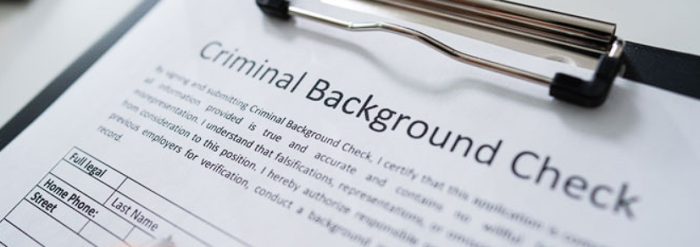Understanding Background Check Laws in Texas
Article Summary
- Key Insight: Gain a comprehensive understanding of “background check laws in Texas” and their implications for employers of all sizes.
- Legal Framework: Learn how Texas’s at-will employment environment aligns with federal guidelines like the Fair Credit Reporting Act (FCRA) and EEOC recommendations.
- Criminal History Checks: Understand how to navigate considering criminal records fairly, consistently, and legally to avoid discrimination claims.
- Data Privacy & Record-Keeping: Discover best practices for securely handling sensitive information and maintaining compliant documentation.
- Local Ordinances & Ban-the-Box: Identify city-level rules that may affect when and how you can ask about criminal histories.
- Expert Assistance: See how The Unit Consulting’s Texas-based HR expertise can help ensure a fully compliant, respectful, and effective hiring process.
Understanding the Overarching Legal Framework
When examining background check laws in Texas, it’s critical to recognize that employers operate within a complex web of state norms, federal statutes, and local ordinances. Unlike some states that have very specific, detailed background check statutes at the state level, Texas law largely defers to the federal framework and encourages employers to follow regulations set forth by the Fair Credit Reporting Act (FCRA) and guidelines from the U.S. Equal Employment Opportunity Commission (EEOC). This flexible approach can be both an opportunity and a challenge. On one hand, Texas employers enjoy some discretion in shaping their own hiring policies; on the other, they must remain vigilant to ensure those policies align with federal non-discrimination standards and industry best practices.
At-will employment in Texas—where both the employer and the employee can end the employment relationship at any time—does not exempt organizations from compliance. Any decision influenced by a background check must still follow a fair and legally sound process. To delve deeper into general employer responsibilities, consult the Texas Workforce Commission (TWC) for guidance on hiring and workforce management.
Complying with the Fair Credit Reporting Act (FCRA)
Central to understanding background check laws in Texas is acknowledging the crucial role of the FCRA. This federal law sets forth requirements for how employers may access and use consumer reports, which can include everything from criminal histories and driving records to credit reports. Prior to conducting a background check through a third-party provider, employers must:
- Obtain Written Consent: Secure explicit, standalone written authorization from the job applicant. This consent should not be buried in other documents; it must be clear and conspicuous.
- Provide Disclosure: Inform applicants that a background check will be conducted and that the results may influence the hiring decision. This disclosure ensures transparency.
- Adhere to Pre-Adverse and Adverse Action Requirements: If you decide not to hire an individual based on the background check, federal law mandates a two-step process. First, issue a pre-adverse action notice, supply a copy of the background report, and allow the candidate time to dispute any errors. If, after considering any new information, you still choose to rescind the offer, provide a final adverse action notice. This sequence ensures fairness and due process.
For more detailed guidance on FCRA compliance, visit the Consumer Financial Protection Bureau (CFPB), which oversees the interpretation and enforcement of the FCRA.
Navigating Criminal History Considerations
While background check laws in Texas do not prohibit employers from considering criminal convictions, it is essential to proceed with caution and fairness. The EEOC advises a case-by-case evaluation of criminal records to determine their relevance to the job in question. Factors to consider include:
- Nature and Severity of the Offense: A non-violent, decades-old misdemeanor may carry less weight than a recent conviction for fraud when hiring for a financial management role.
- Time Elapsed Since the Offense: A long-past conviction with evidence of rehabilitation may be less indicative of current character.
- Job Relevance: The conviction should be related to the duties and responsibilities of the position. For instance, a driving offense may be more relevant for a delivery driver role than for a data entry position.
Employers should apply these standards uniformly. Inconsistency can invite allegations of discrimination if certain demographic groups appear to be adversely impacted. To better understand the use of criminal history information, consult EEOC Enforcement Guidance on the use of arrest and conviction records in employment decisions, as well as the Texas Department of Public Safety (DPS) for accessing and interpreting criminal history records.
Avoiding Discrimination and Ensuring Fairness
Discrimination in hiring—whether intentional or unintentional—is a significant risk when dealing with background checks. Even well-intentioned policies can have a disparate impact on protected groups. Federal law prohibits discrimination based on race, color, religion, sex (including pregnancy and gender identity), national origin, age (40 or older), disability, or genetic information. Employers must ensure that their background check practices are applied consistently across all candidates. A policy that disqualifies individuals for certain offenses without considering context may disproportionately exclude members of a particular racial or ethnic group.
By thoroughly documenting your evaluation criteria and consistently applying them, you reduce the risk of legal challenges. When in doubt, consider consulting legal counsel or an experienced HR professional who understands the intersection of Texas employment practices and federal anti-discrimination laws.
Local Ordinances and Ban-the-Box Policies
Although Texas does not have a statewide “ban-the-box” law, certain municipalities, such as Austin, have enacted fair chance hiring ordinances that restrict when employers can inquire about criminal history. These local rules often require employers to delay criminal background checks until after a conditional job offer has been made. The purpose is to provide qualified candidates with an opportunity to be evaluated on their skills and experience before any potential past mistakes overshadow their prospects.
Keeping abreast of local requirements is crucial. Regularly reviewing updates from the TWC or city government websites can help you stay informed. If your business operates across multiple Texas jurisdictions, ensure that your hiring policies account for varying rules.
Data Privacy, Record-Keeping, and Documentation
Given the sensitivity of personal information collected during background checks, employers must implement strict data privacy and record-keeping protocols. Proper handling of background reports not only helps maintain compliance with background check laws in Texas and federal standards but also protects your organization from reputational harm and potential legal liability.
- Secure Storage: Keep physical copies of background reports in locked cabinets and limit digital access to authorized personnel only.
- Retention Policies: Familiarize yourself with record retention guidelines. While Texas law may not mandate a specific retention period for background checks, federal agencies often recommend retaining records for at least one year. If a charge of discrimination is filed, maintaining the documents until the final resolution of the case is advisable.
- Disposal Methods: Safely dispose of outdated records. Shred physical documents and ensure digital data is securely deleted. Following Federal Trade Commission (FTC) rules on proper disposal of consumer information is wise. Refer to FTC Disposal Rules for guidance.
Continual Compliance and Policy Refreshers
Employment laws evolve over time. Federal agencies may issue updated guidelines, courts may reinterpret existing statutes, and local jurisdictions may pass new ordinances. To remain compliant:
- Monitor Legal Updates: Regularly review resources provided by the TWC and federal agencies.
- Conduct Periodic Audits: Assess your background check policies and procedures annually to ensure they reflect current laws and best practices.
- Train Your HR Team: Offer ongoing training to ensure that those involved in hiring understand the nuances of FCRA compliance, EEOC guidance, and local regulations.
By proactively managing your compliance strategy, you safeguard your business against costly legal disputes and enhance your reputation as a fair, ethical employer.
The Unit Consulting: Your Partner in HR Compliance
Navigating background check laws in Texas can be a challenging endeavor, especially when you’re juggling day-to-day operations and long-term business growth. The HR outsourcing experts at The Unit Consulting provides expert guidance in streamlining your background check policies, ensuring compliance with FCRA requirements, and applying EEOC recommendations consistently. Our Texas-based HR professionals understand the state’s unique employment environment and stand ready to help you create a hiring process that respects candidate rights, protects your organization, and upholds the highest standards of fairness.
Whether you need assistance drafting policies, training your team on best practices, or auditing your current approach, The Unit Consulting is here to support you every step of the way. With our help, you can transform a complex, sometimes intimidating area of compliance into a clear, manageable component of your talent acquisition strategy.









